So, you are considering visiting the Emerald Isle but are seriously worried about it breaking the bank.
Well, I’m here to share some ways to save money in Ireland as a visitor to show you that there are many ways to explore Ireland without it costing a pretty penny.
Savvy travellers can save money in Ireland by planning ahead and making smart choices. From budget-friendly accommodation options to free attractions, visitors can stretch their euros further with a bit of know-how. And that’s where I come in.
My guide reveals practical tips for enjoying Ireland’s charms whilst keeping costs down. From transportation hacks to dining on a budget, these strategies will help you make the most of your Irish adventure without emptying your wallet.
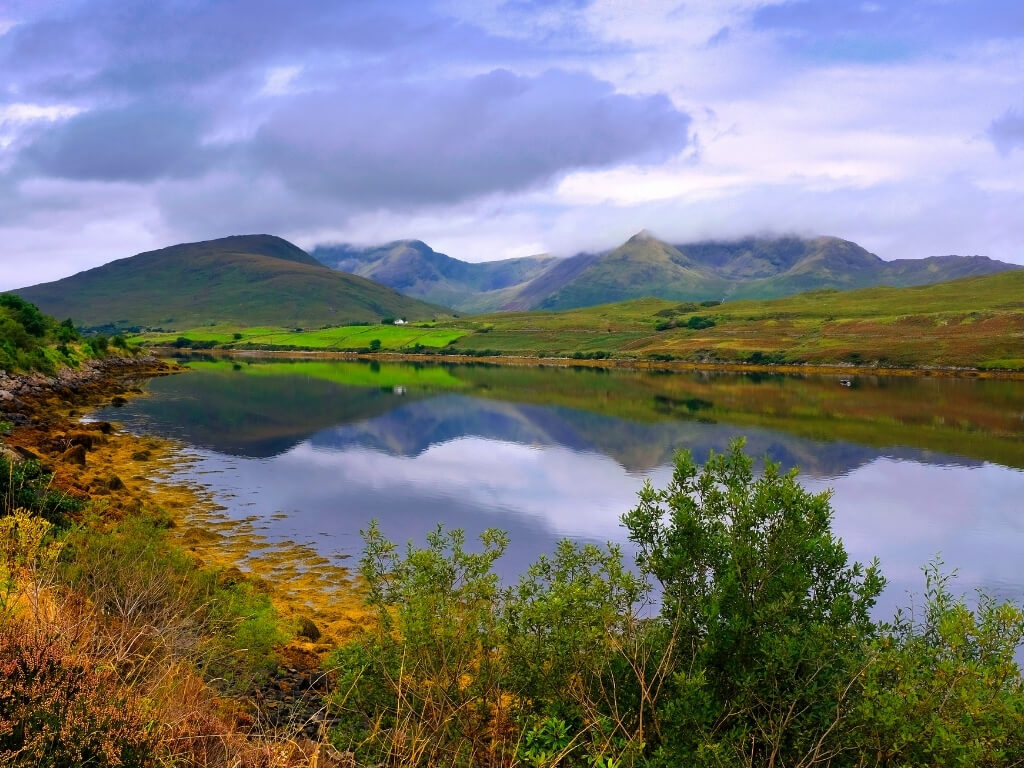
*This post contains affiliate links, which may include Amazon affiliate links. To read more about affiliate links, please visit my Disclosure Policy page.
1. Plan Ahead
Planning ahead, in my opinion, is crucial for saving money on your Irish holiday. I’ve planned visits home to Ireland far in advance and with only a few weeks to spare, and I can tell you from experience, last-minute trips ALWAYS end up costing more.
One of the biggest cost factors for any trip to Ireland is flights (if you aren’t lucky enough to live close to a Ryanair airport).
Booking flights well in advance can lead to significant savings. There are a few ways to get the best savings on your flights.
- Use flight comparison tools to find the best deals and consider travelling during off-peak seasons for lower fares.
- Don’t limit yourself to major airports. Flying into smaller hubs like Shannon or Cork instead of Dublin might offer better prices and less crowded experiences.
- Signing up for the airline newsletters will mean you get advanced warnings about sales to take advantage of budget-friendly prices. I am signed up for the Aer Lingus newsletter and regularly get notifications of their sales between the US and Ireland.
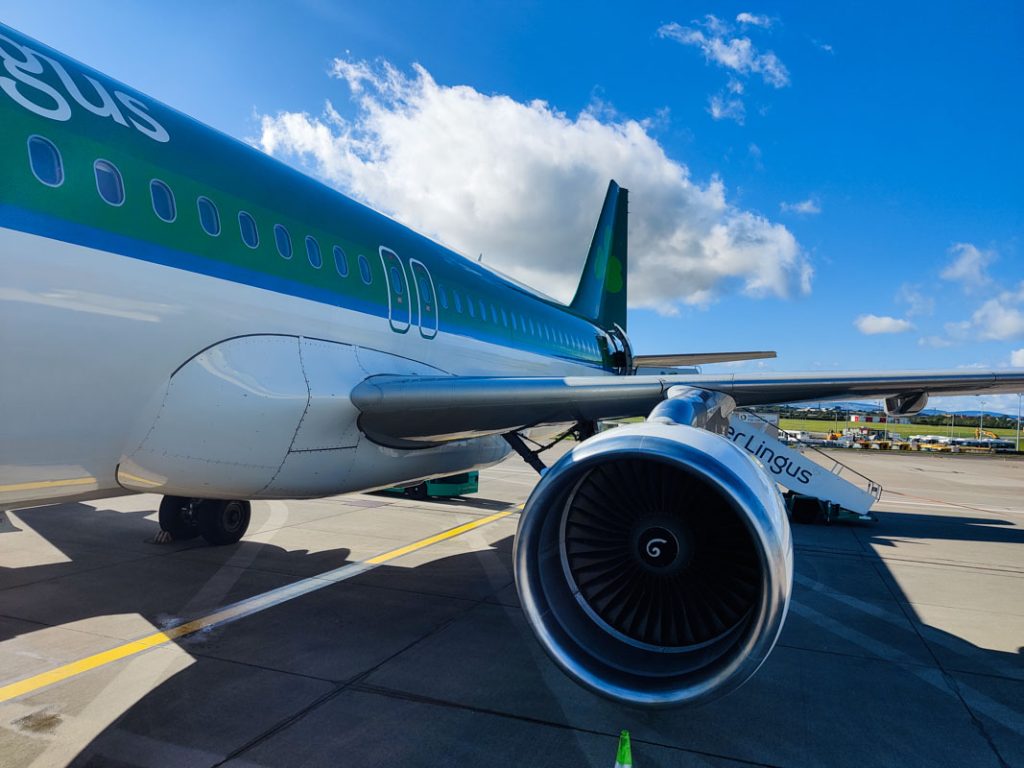
Another way to keep your costs down in your planning is to create a budget-friendly itinerary by prioritising your must-see attractions.
Research free and low-cost activities in each destination to stretch your money further. Many Irish museums and galleries offer free admission, whilst scenic walks and hikes cost nothing but provide priceless memories.
I have an article dedicated to the free museums and galleries in Dublin. These are not only budget-friendly, but they are also great places to go if it’s raining in Dublin.
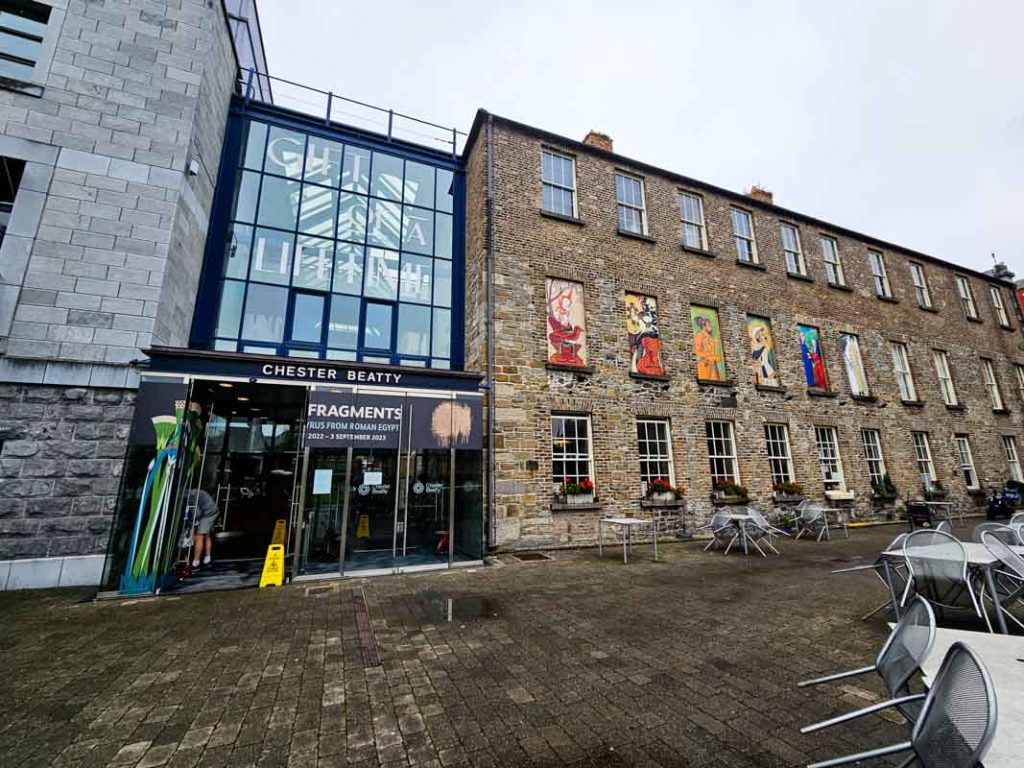
Consider purchasing combination tickets for popular attractions to save money on entry fees. Some cities offer tourist passes that include public transport and access to multiple sites at a discounted rate.
Go City Dublin is an excellent example of a combination ticket that offers sightseeing bus tickets with discounted attraction tickets.
And finally, research accommodation options early. Booking in advance often secures better rates for hotels and hostels. Leaving your accommodation to the last minute will result in fewer options and often higher prices.
You can also consider alternatives like holiday rentals, glamping or B&Bs for potentially lower costs.
2. Accommodation
Choosing the right lodging can significantly impact your budget when visiting Ireland.
Hostels offer a wallet-friendly option for solo travellers or those seeking a social atmosphere. Some hostels offer large dormitories, ideal for larger groups, and some also have family rooms. Check out Generator Dublin as an example.
Bed and breakfasts provide a cosy, home-like experience, often at reasonable rates. And of course, with breakfast included that is one less meal to worry about.
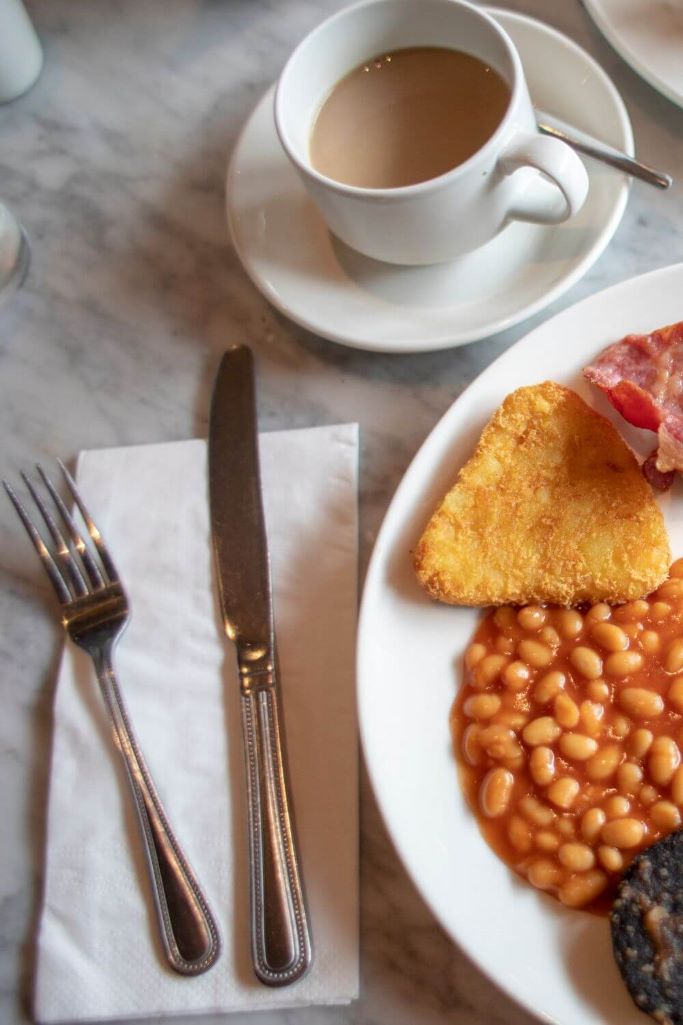
Budget hotels and vacation rentals are worth considering for those desiring more privacy. Booking.com is my go-to website for booking my accommodation in Ireland and the variety and choice is endless.
Staying outside major cities can also lead to substantial savings. Consider basing yourself in smaller towns or rural areas, which often boast lower accommodation costs and a more authentic Irish experience.
Booking tips:
- Compare prices across multiple websites
- Contact accommodations directly for potential discounts
- Look for mid-week stays, which are typically cheaper
- Travel during off-peak seasons for better rates
For the adventurous, house-sitting, or home exchange programmes can provide free lodging.
If you are a nature enthusiast, you might enjoy camping or glamping, which offers a unique way to experience Ireland’s beautiful landscapes whilst keeping costs down.
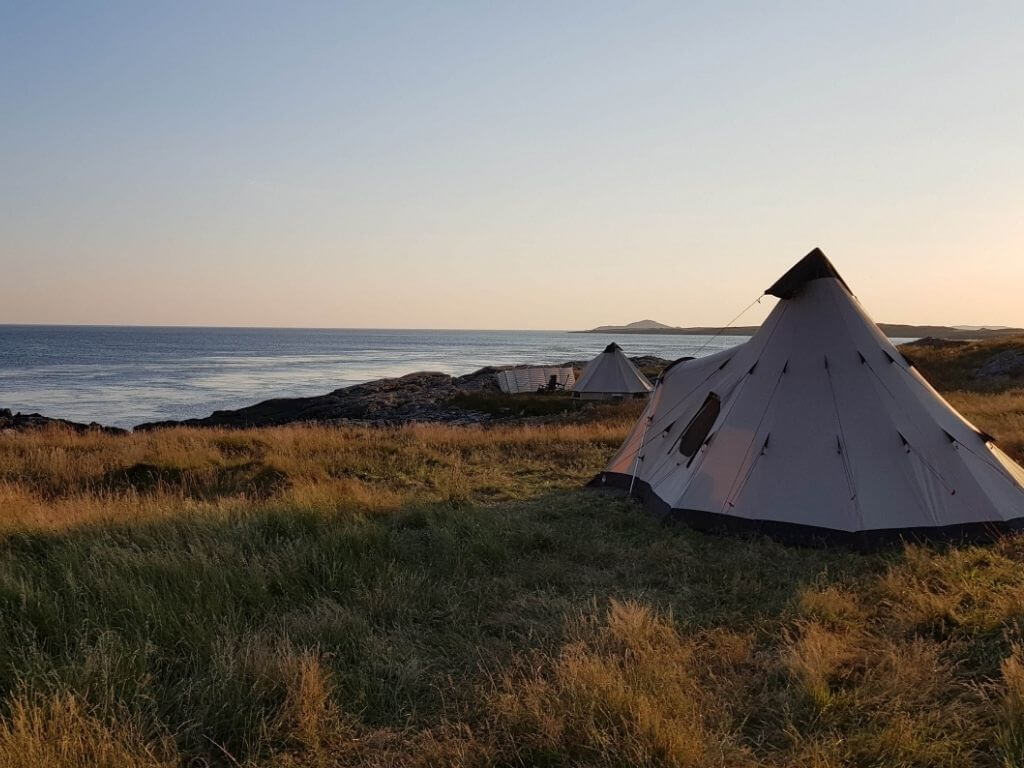
Remember to book in advance, particularly during peak tourist seasons, to secure the best deals and ensure availability.
3. Transportation
Getting around Ireland affordably is key to saving money as a visitor.
Public transport offers an economical and scenic way to explore the country. Buses and trains connect major cities and towns, with travel passes and discount cards available for additional savings.
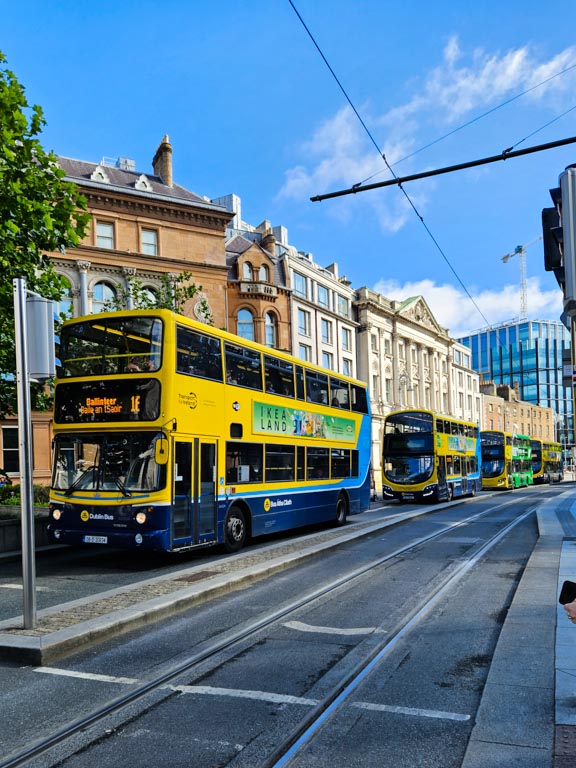
But, if you are looking to visit an out-of-the-way attraction or small town, you might find it harder to reach by public transport. Just bear this in mind. An example is Clonmacnoise in County Offaly which is one place not serviced by public transport.
Renting a car can be cost-effective for groups or when exploring rural areas as mentioned above. To find the best deals, book early and compare prices online.
If you’re already covered by your own insurance, consider declining additional rental coverage to reduce costs. Just be aware that you may be charged a €5000 deposit on a credit card by your rental car supplier as many in Ireland do not accept third-party insurance.
And for those who are travelling from the US, check with your credit card if you ARE covered in Ireland. There are many US credit card car rental insurance policies who do not cover Ireland and Italy, so double-check before you go.
Personally, I always take out the full Super Collision Damage Waiver (SCDW) insurance directly with the car rental company. Many car rental companies allow you to add this to your rental online which means there are no nasty surprises when you arrive at the car rental desk in arrivals!
And more recently, I have had rental cars from the all-inclusive car rental companies in Ireland. These companies automatically include SCDW and also include other things like second drivers, driving to Northern Ireland and tyre/window shield insurance as part of the price. The price you see online is the price you pay for EVERYTHING.
The two companies are:
- Newway (price online)
- My Irish Cousin (price through quotation)
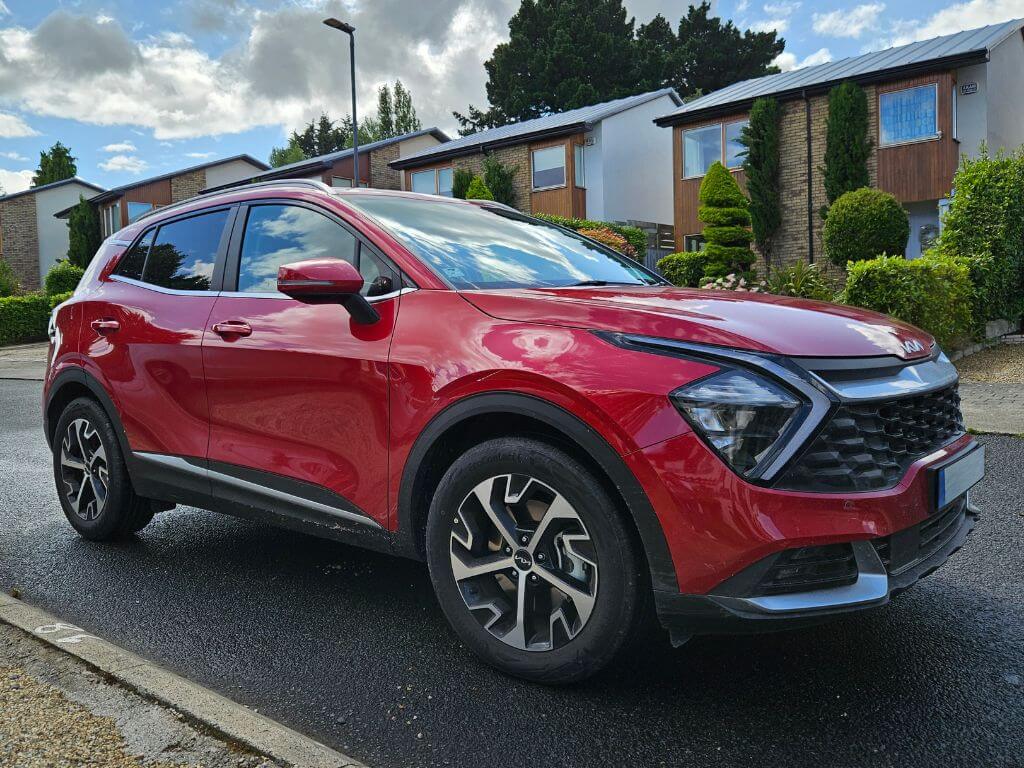
For urban exploration, cycling and walking are excellent budget-friendly options. Many Irish cities offer bike hire schemes, whilst walking allows you to soak in the local atmosphere at no cost.
The majority of the tourist attractions in Irish cities are located in the centre of the city so reaching them by foot is the easiest and cheapest option. Even Dublin is walkable!
Tips for saving on transport:
- Purchase a Leap Card for discounted public transport fares. I have a Leap Card for both my son and me and we always use this to get in and out of Dublin from the suburbs where we usually stay with family. I’ve downloaded the app to my phone making it very easy to see our balance and to top them up when required.
- Book train tickets in advance for lower prices. The closer you book to your planned journey day, the higher the prices will be.
- Use local bike-sharing schemes in cities.
- Take advantage of free walking tours in major towns. It is not only a free activity but also a great way to get to know the city and get your bearings.
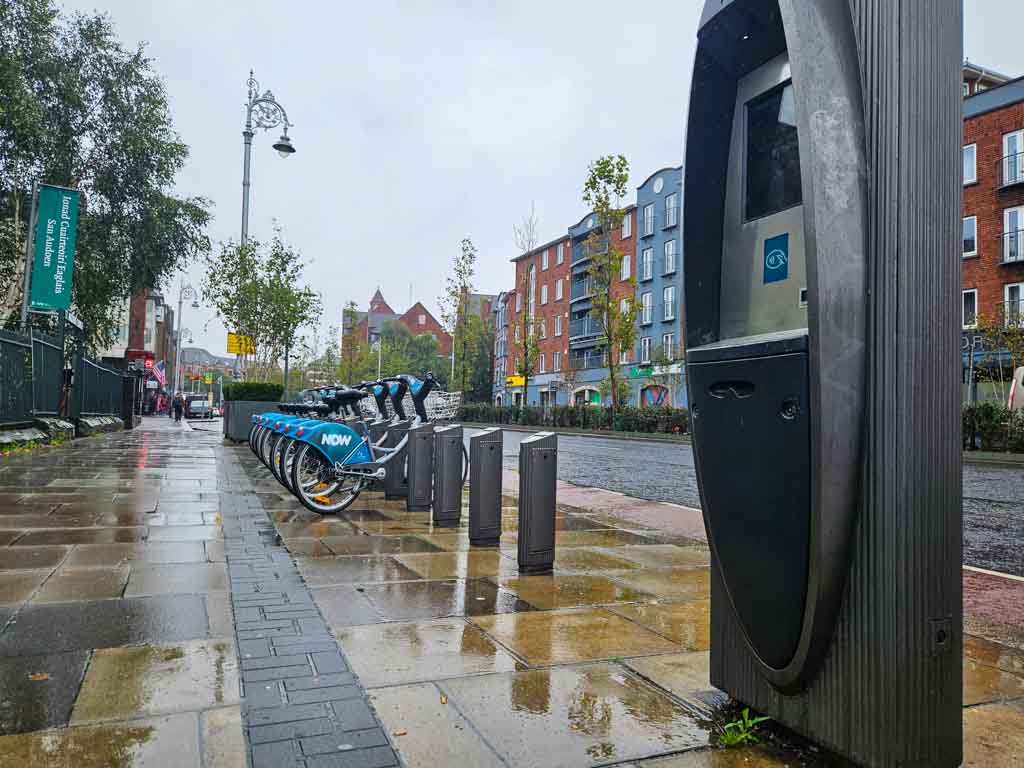
Remember, choosing accommodation near public transport links or within walking distance of attractions can significantly reduce your overall transport costs during your visit to Ireland.
4. Food and Drink
The Emerald Isle offers visitors lots of ways to enjoy delicious meals and drinks without breaking the bank.
Affordable local eateries can be found throughout the country, often tucked away from tourist hotspots. Ask your accommodation staff for recommendations on budget-friendly restaurants in the area.
Self-catering is an excellent option for saving money on food, especially if you are staying in a house or apartment with kitchen facilities. Visit local grocery stores to stock up on supplies and prepare meals in your accommodation. This approach not only reduces costs but also allows you to experience Irish ingredients firsthand.
This is exactly what my family does. We always rent a house with a kitchen, and we normally prepare breakfast and dinner at our accommodation. For long sightseeing days, we also pack a picnic to enjoy somewhere nice. Alternatively, we may eat lunch at an attraction as a treat.
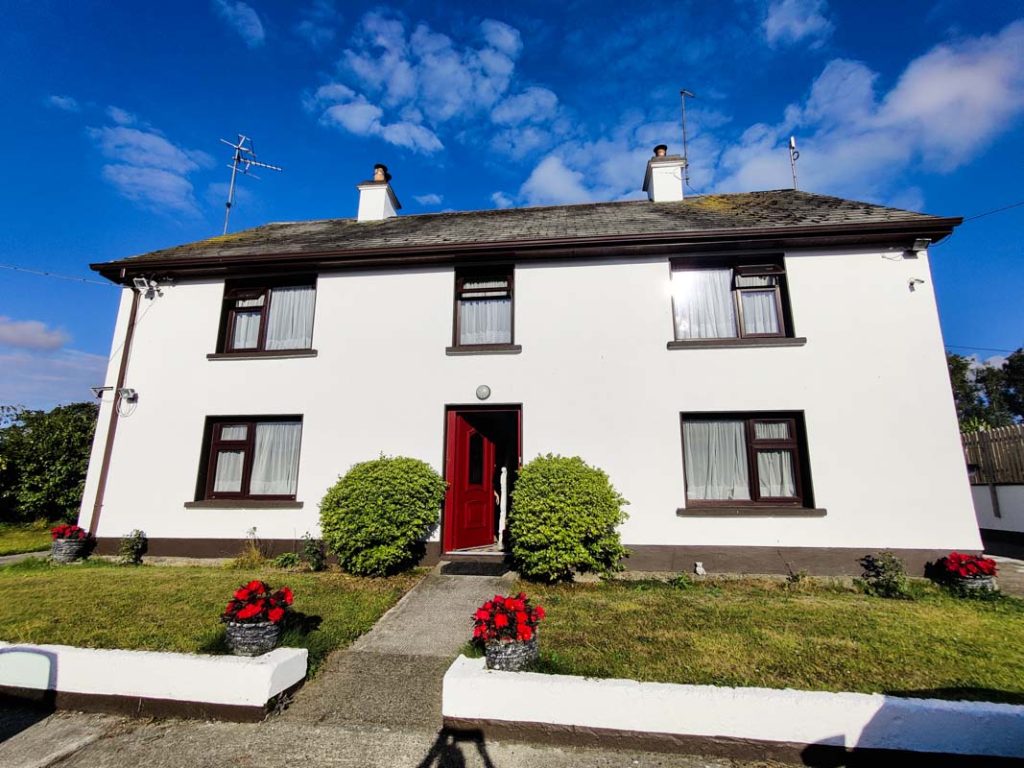
Many restaurants also offer lunch specials or early bird menus at discounted prices. Take advantage of these deals to enjoy quality meals for less. It’s worth planning your main meal earlier in the day to benefit from these offers.
Irish pubs are iconic and can be budget-friendly. Look for local establishments that offer reasonably priced pints and pub grub. Some pubs feature live music without cover charges, providing entertainment at no extra cost.
Keep an eye out for happy hour specials in pubs and bars. These promotions often include discounted drinks and sometimes food deals. It’s a great way to experience Irish nightlife while staying within your budget. Just be aware that most happy hours are between the hours of 5pm and 7pm.
5. Attractions and Activities
Ireland offers numerous ways to enjoy its rich culture and stunning landscapes without breaking the bank.
Visitors can explore the country’s breathtaking national parks and natural sites at little to no cost. These include pristine beaches, lush forests, and awe-inspiring cliffs.
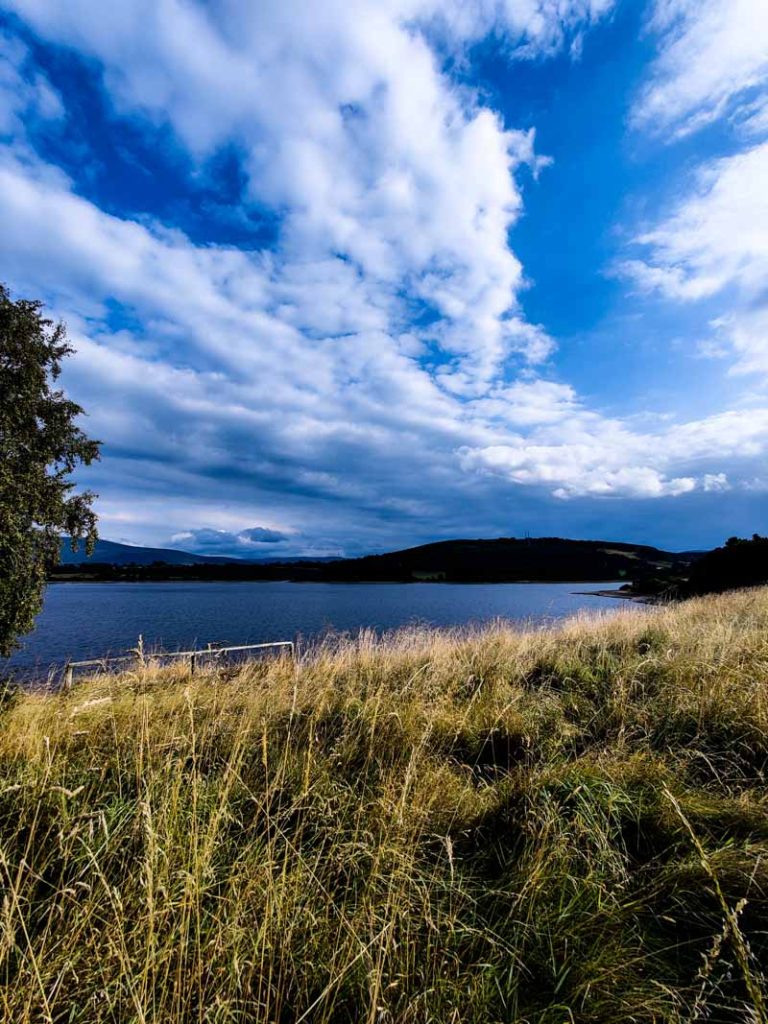
Many museums in Ireland offer free admission days, allowing budget-conscious travellers to soak up history and art without spending a penny.
Historic sites and landmarks dot the landscape, providing ample opportunities for exploration.
Tourist passes like the Go City Dublin Pass or OPW Heritage Card can offer significant savings for those planning to visit multiple attractions.
Students and seniors should always enquire about discounts, as many venues offer reduced rates.
Free walking tours are available in major cities, providing an excellent way to learn about local history and culture. These tours operate on a tip-based system, allowing visitors to pay what they feel is appropriate.
Ireland’s vibrant cultural scene includes numerous free or low-cost events throughout the year. Local festivals celebrate everything from music to literature, often at minimal expense to attendees.
And lastly, traditional music and dance sessions in pubs offer an authentic Irish experience without a hefty price tag. Visitors should check local event listings for free music, art, or theatre performances to fully immerse themselves in Irish culture on a budget. Your accommodation may also be able to advise of any events taking place during your stay.
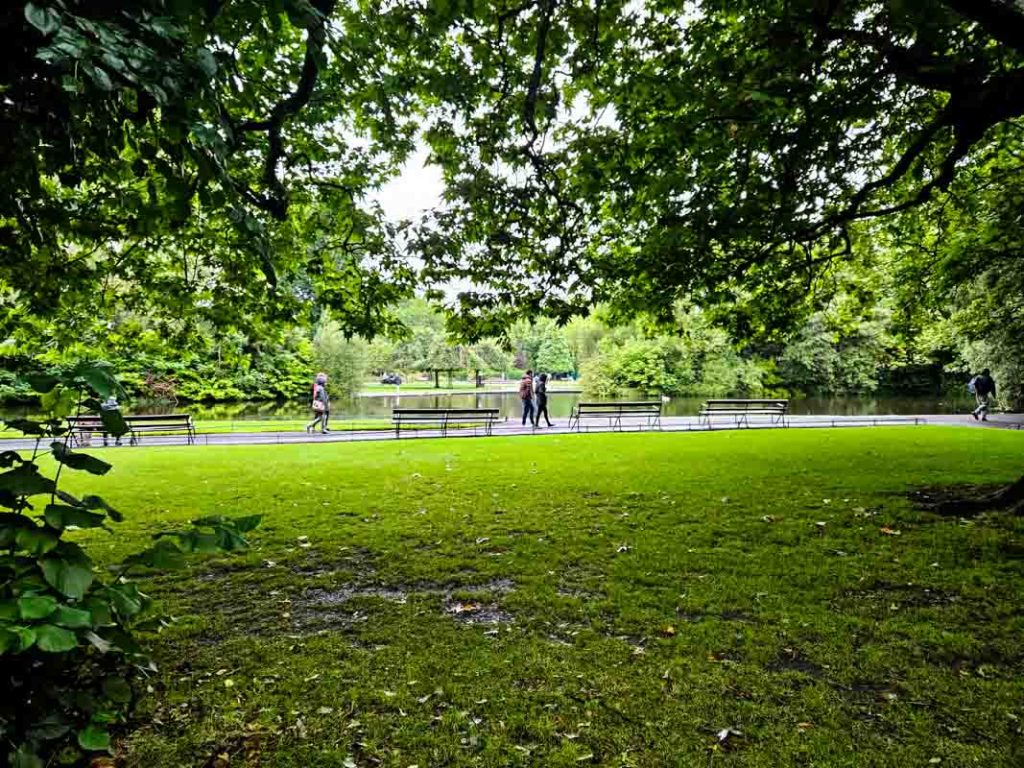
6. Shopping and Souvenirs
There are plenty of opportunities to find unique souvenirs without breaking the bank in Ireland.
Local markets and craft fairs are treasure troves of authentic Irish goods at reasonable prices. These venues often showcase handmade items, traditional crafts, and locally produced foods.
To avoid overspending, steer clear of tourist-centric gift shops in popular areas. These establishments typically charge premium prices for mass-produced items. Instead, venture into smaller towns or local neighbourhoods for more affordable options.
I found a beautiful set of reasonably-priced handmade prints from a local artist in the George’s Street Arcade in Dublin on my last trip to Ireland. So, remember to venture into arcades if you see them as you might find a bargain or two!

Savvy shoppers can take also advantage of tax-free shopping in Ireland. Non-EU visitors spending over €75 in a single transaction may be eligible for VAT refunds. To claim this benefit, request a VAT refund form from the retailer and present it at customs when leaving the EU.
For the best tax-free shopping experience:
- Keep all receipts and completed forms together.
- Allow extra time at the airport for processing.
- Carry any purchased items in your hand luggage for easy inspection.
When shopping for traditional Irish products, compare prices across different shops. Items like Aran sweaters, Waterford crystal, and Celtic jewellery can vary significantly in cost depending on the retailer and location. So, shop around before you make your final decision.
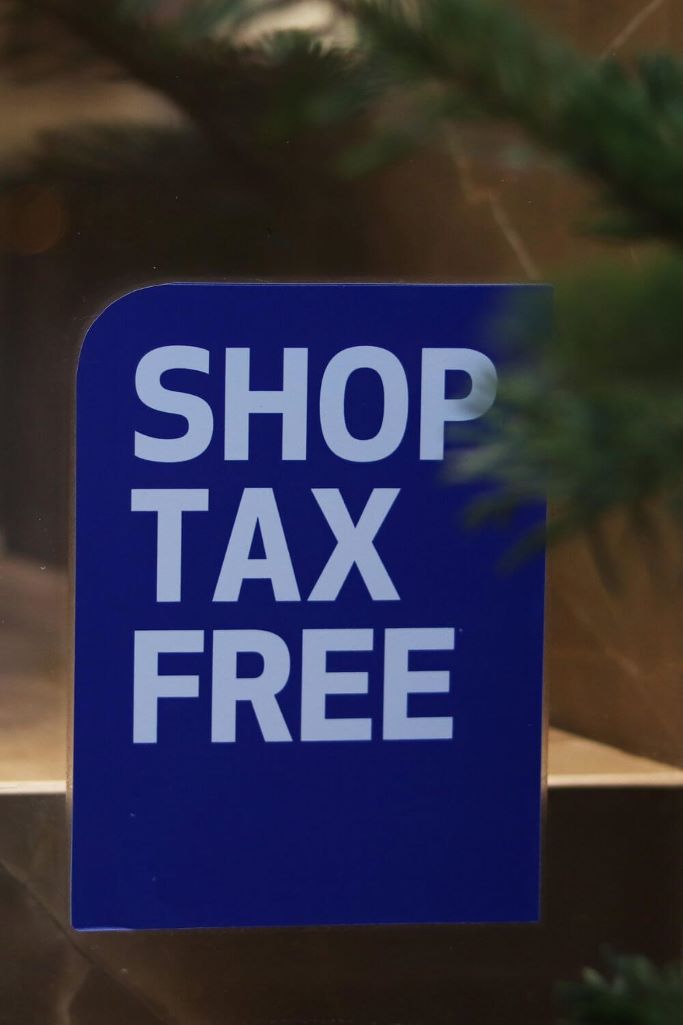
7. Connectivity and Communication
Staying connected in Ireland without breaking the bank is achievable with a bit of planning.
Purchasing a local SIM card upon arrival is a cost-effective solution for mobile data and calls. Many providers offer prepaid options tailored for visitors. And there are shops in arrivals at Dublin Airport where you can buy said cards.
Free Wi-Fi is readily available throughout Ireland. Many cafes, libraries, and public spaces often provide complimentary internet access that you can connect to.
Take advantage of these hotspots to look up attraction details, download a map or check details of your next accommodation stop. Just don’t use open networks for things like online banking!
Messaging apps are invaluable for budget-conscious communication. WhatsApp, Skype, and Facebook Messenger allow free calls and texts when connected to Wi-Fi. This approach sidesteps costly international rates.

To avoid unexpected charges, it’s crucial to disable mobile data roaming before departure. Many smartphones have built-in settings to prevent accidental usage abroad. Alternatively, purchasing an international plan from one’s home provider can offer peace of mind.
You should consider downloading offline maps and travel guides before the trip. These tools reduce the need for constant internet access while exploring. They’re particularly useful in rural areas where connectivity might be limited.
8. Money Management
Managing finances wisely can significantly reduce expenses whilst travelling in Ireland.
For currency exchange, use ATMs or local banks to secure the most favourable rates. It’s highly recommended you steer clear of exchange services at airports and tourist hotspots, as these often offer less competitive rates.
When it comes to payments, credit cards without foreign transaction fees are an excellent choice.
Many establishments across Ireland accept contactless payments and mobile wallets, providing a convenient and secure method of transaction. Just be aware that not all places in Ireland accept American Express, so ensure you have a backup plan if that is your preferred credit card.
To keep spending in check, consider employing travel budget apps. These handy tools allow you to track your expenditures easily and maintain a clear overview of your financial situation.
Setting daily spending limits is another effective strategy. By allocating a specific amount for each day, you can avoid overspending and ensure your budget stretches throughout your entire trip.
Lastly, be mindful of dynamic currency conversion when using cards. Opting to pay in euros rather than your home currency typically results in better exchange rates and lower fees.
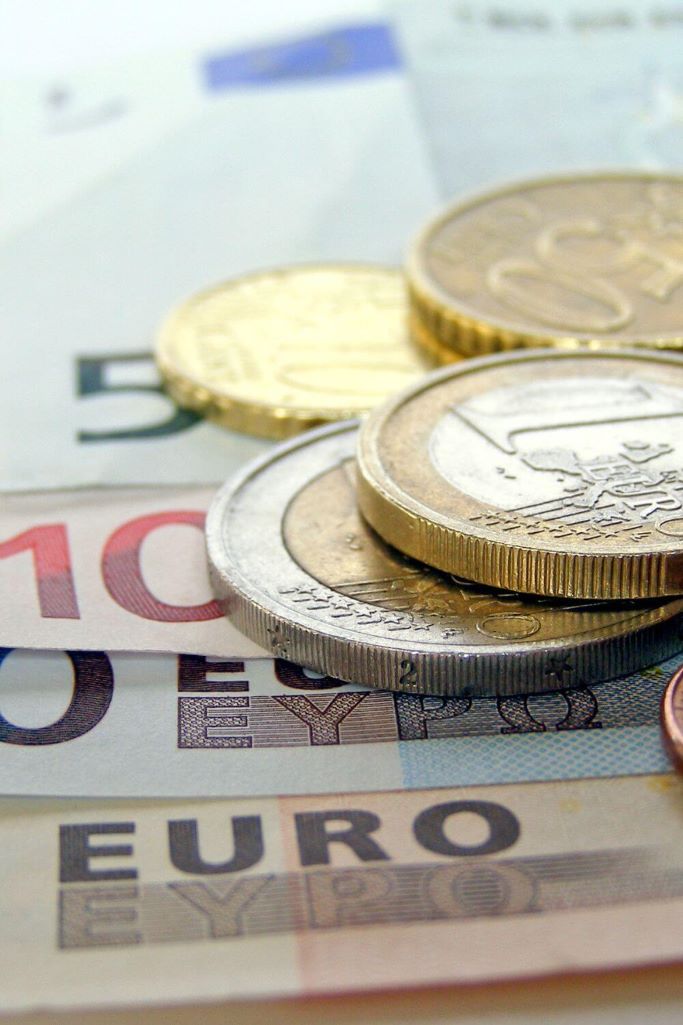
9. Additional Tips
Travelling to Ireland during the shoulder season can offer significant savings. Visitors can enjoy milder weather and smaller crowds whilst benefiting from lower prices on accommodation and attractions. Spring and autumn are particularly pleasant, with comfortable temperatures for exploring.
I have an article about the best time to visit Ireland which details the pros and cons of going to the Emerald Isle throughout the year that you might enjoy.
Packing wisely is crucial for saving money and hassle. Ensure you pack versatile clothing suitable for layering, as Irish weather can be changeable. Don’t forget essentials like:
- Waterproof jacket (a must in my opinion).
- Comfortable walking shoes (preferably waterproof).
- Universal power adapter
- Reusable water bottle
By packing these items, travellers can avoid costly purchases upon arrival.
Consider purchasing an OPW Heritage Card for access to numerous historical sites at a discounted rate. This pass covers entrance fees to many popular attractions throughout Ireland. It is especially handy if you are going to be visiting many sites throughout your visit, or if you plan to return to Ireland within a year of your first visit.
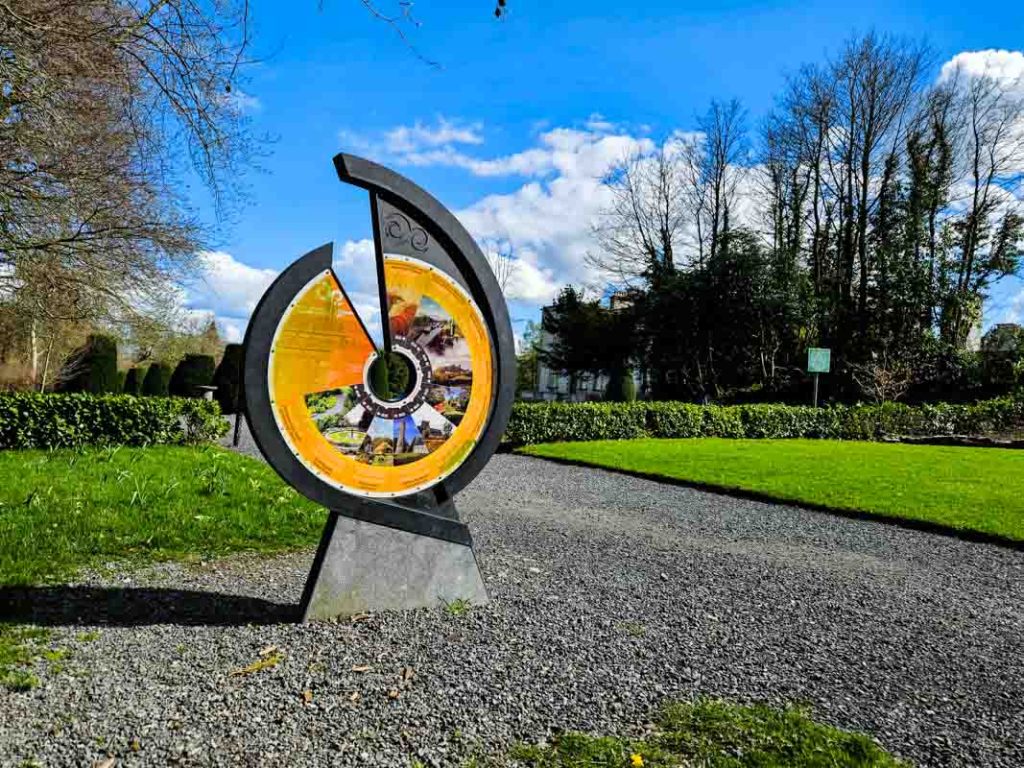
Get yourself on a free walking tour in major cities. These guided excursions provide valuable insights into local history and culture without straining the budget.
Take advantage of early bird specials at restaurants. Many eateries offer discounted menus for diners who arrive before peak hours.
Explore Ireland’s stunning natural landscapes, which are often free to enjoy. From scenic coastal walks to tranquil forest trails and city parks, there’s no shortage of budget-friendly outdoor activities.
Final thoughts
Saving money while visiting Ireland is entirely feasible with some smart planning and savvy choices. By opting for budget-friendly accommodation, using public transport, and seeking out free attractions, travellers can significantly reduce their expenses.
Flexibility in travel dates and advance booking can lead to substantial savings on flights and accommodation. Tourists should also consider purchasing tourist passes for attractions and transport to maximise their budget.
Remember, travelling frugally doesn’t mean missing out on the rich culture and warmth of Irish hospitality. With these money-saving tips, you can fully immerse yourself in the Emerald Isle’s charm and create lasting memories without financial strain.
You might also find these articles useful:
- Do You Tip in Ireland?
- Is There Uber in Dublin?
- Packing Essentials for Ireland
- How to Get Around Ireland – With a Car or Without
Save for later on Pinterest
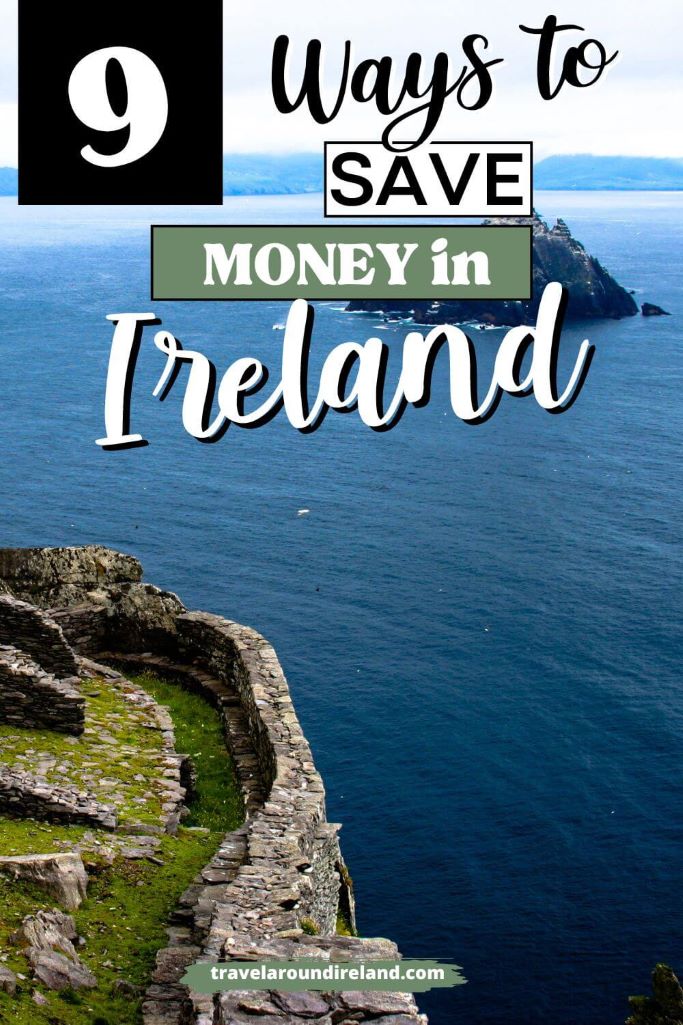
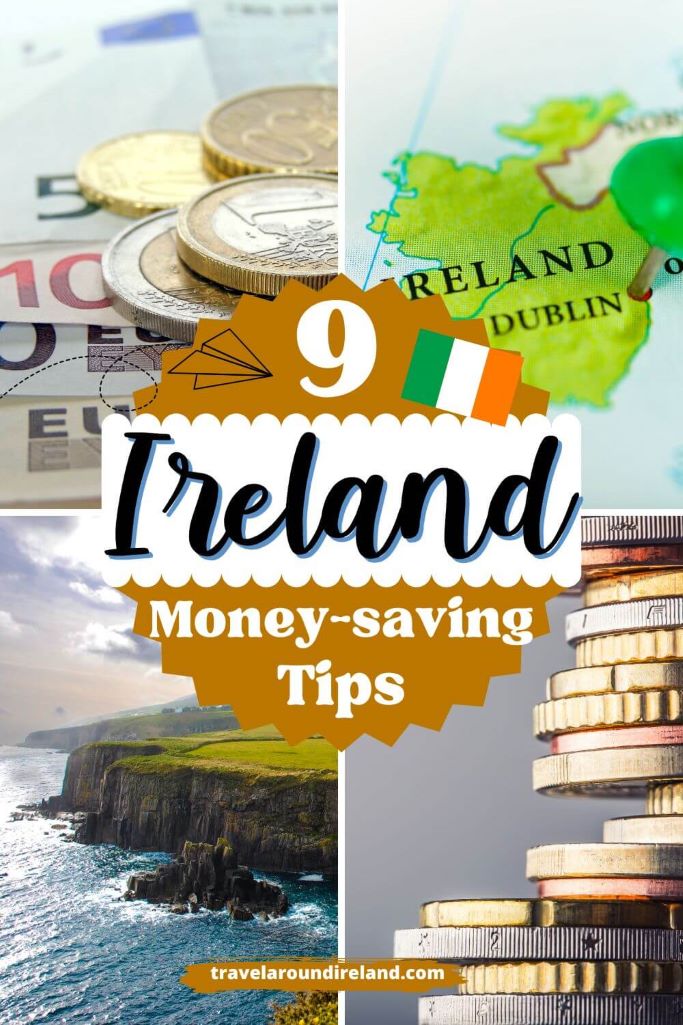

Dear Cath,
thank you so much for sharing your insights.
It will be my first visit to the western part of Emerald Isle this late summer.
Your detailed information is unbelievable helpful to meet it’s charm, and enjoy a warm welcome of the people. 🙂